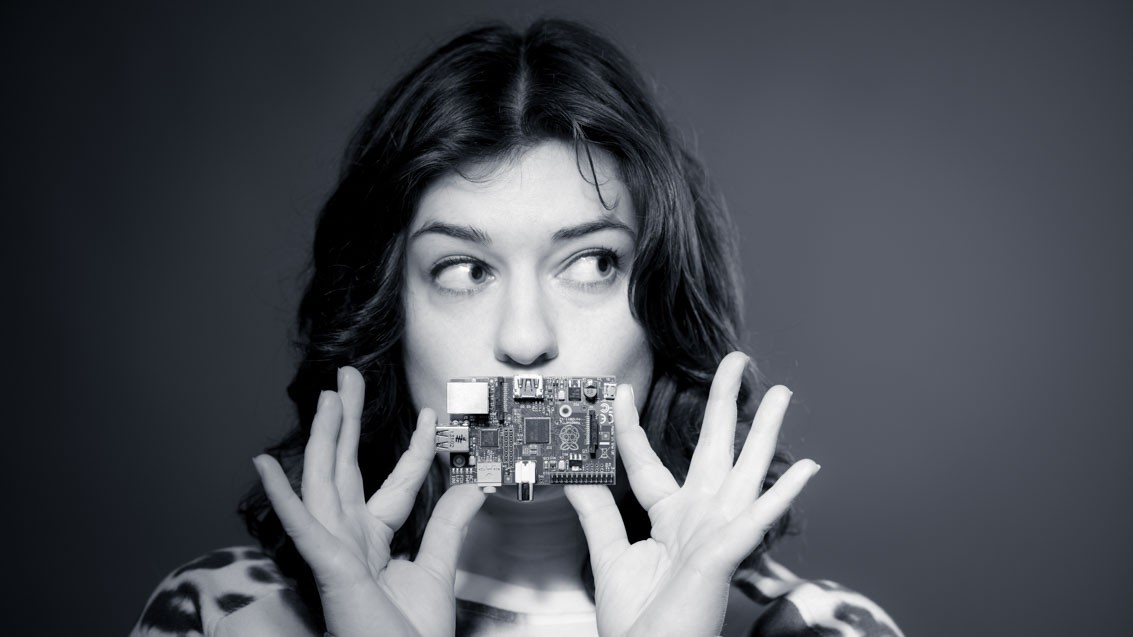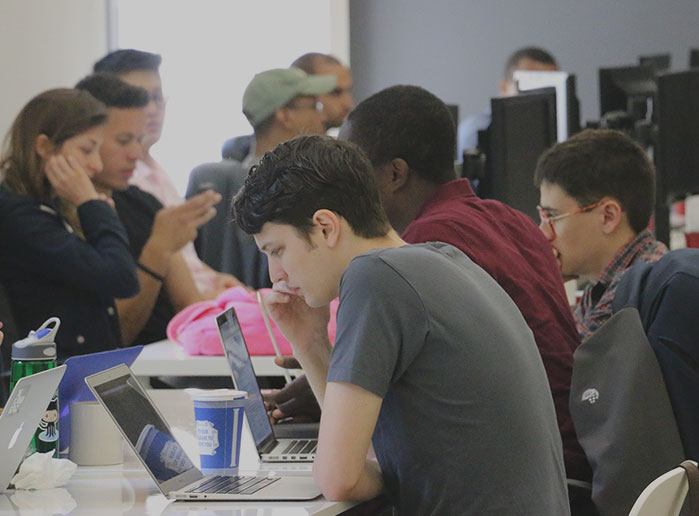Some of Catherine McCurry’s ideas may sound like they come straight from the Sci-Fi Channel, but as a creative programmer, thinking about the future is just part of the job.
Originally a classical violinist, McCurry fuses art with tech in surprising and innovative ways. In 2013, she teamed up with Nexus and Delta Airlines to engineer a photon shower that remedies jet lag, which later won a Gold Medal award from AdWeek and the D&AD Yellow Pencil Award for Innovative Use of Technology in 2014.
Using 3D cameras and custom software written in C++, continuously saved snapshots of people’s movements are printed out into physical objects, that don’t look much unlike crystals you’d find in a cave. (If you’re having a hard time visualizing this, we suggest you take a look at the video below.)
With dozens of other innovative ideas under her belt and more to surely come, Flatiron School stole a few moments of her busy life to ask some questions via e-mail.
As an artist who works in code, you use a continually evolving medium. Where do you find the inspiration for your ideas?
I’m interested in how people interact with technology today and in thinking about what that could mean in the future. Since I was a kid, I’ve been really obsessed with science fiction and horror — in taking things to the extreme and creating alternate realities that are slightly twisted versions of our reality. In my work I often try to create interactions that take place on human scale between people and systems, as well as people and other people. I like projects that make people think about or move their bodies in ways they don’t expect to every day.
What technology/programs did you use most on your latest project or installation?
I frequently use computer vision to create interactive spaces, as well as open source software toolkits like openFrameworks and Cinder. I also do a fair amount of hardware work and use things like sensors, Arduinos and other microcontrollers, and Raspberry Pis.
Do you ever feel limited by the technology you’re using?
Every technology has limits. But you have to know what the limits and capabilities of your tools are in order to make effective work. So, I think the best execution of an idea embraces the medium through which it is being expressed. If I wanted to make a stained glass window and had to do it with cardboard, I’d probably feel limited by the physical realities of cardboard.
And of course there are things I’ve thought of that are not possible with current technology, but I try not to get hung up on those things.
How do you see technological advances affecting everyday life in the next 10 to 15 years?
Well, I think it’s interesting to think of our relationship with our personal devices. A lot of people walk around with their laptops, and especially their smartphones kind of functioning as an extension of themselves. We’re attaching more and more devices to our bodies to try and keep us connected to our technological selves — how am I sleeping/walking/eating? Who is talking to me? I do think that the proliferation of these types of devices is a bit of a fad, and will not become practical until we figure out how to make more efficient batteries and charging mechanisms. People are walking through the streets like outlet nomads desperately trying to find their next fix before their phone dies. I think we’ll see technology blending in more and more.
What advice would you give to someone who’s interested in pursuing a career in tech or programming?
If you’re interested in a career in programming or technology, you have to make things. I’ve never been able to learn a new language by sitting down and reading a book, or doing a problem set. Even though I studied science and technology in school, I acquired most of the skills I use while making something specific. I’d have a goal in mind, and figure out everything that I had to to make it happen. I’m always building my technical vocabulary, but there is also so so much that I don’t know or understand yet. Be humble, be curious, never stop learning.

Written byFLATIRON SCHOOL
Make yourself useful.

